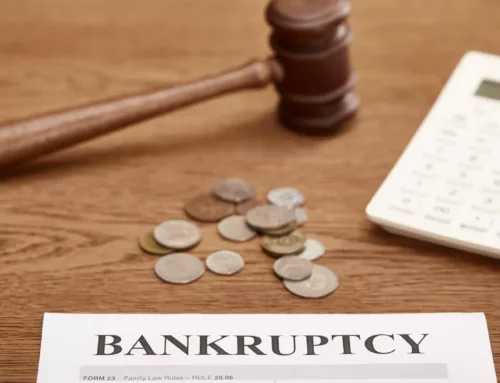You will likely file for bankruptcy to benefit from discharged debt. However, this is not always the case.
A bankruptcy trustee, a creditor, or even the debtor who filed for bankruptcy may file a motion for dismissal. A bankruptcy dismissal will essentially close a bankruptcy case. If the dismissal comes before the bankruptcy discharge, it means you cannot anymore enjoy the bankruptcy protection that comes with automatic stay (the court order prohibiting creditors or debt collectors from asking for payments for what you owe), and your debts are not forgiven or eliminated (you will have to pay off your debts from lenders as if you did not declare bankruptcy)
Whether or not you voluntarily requested to have your bankruptcy petition dismissed, the court will first look into several factors before deciding. This includes the filing chapter (whether it is a bankruptcy chapter 7 or 13), the part of the bankruptcy process you are currently at, and how your creditors will be affected by the dismissal.
Why Would Bankruptcy Cases Be Dismissed?
Reasons that the bankruptcy court will look into range from simple failure to file the correct bankruptcy forms to fraudulent activities (intentional misconduct).
- Not passing the means test

- Failure to attend the meeting of creditors arranged by your bankruptcy trustee
When you decide to file for bankruptcy, you are required to attend a meeting of creditors. Through this hearing, trustees and creditors can ask questions under oath regarding the papers and finances of the bankrupt individual. Proof of your identification will also formally be presented. A meeting of creditors often takes just a few minutes, since very rarely do creditors show up. If you fail to show up, however, your trustee will likely ask the court to have your case dismissed.
- Failure to complete the mandatory education courses
Under bankruptcy law, debtors must finish a credit counseling course before filing bankruptcy and a debt management course before getting a discharge. A certificate of completion will be given to you, which you must include with your filing. Otherwise, the court will likely have your bankruptcy filing dismissed.
- Bankruptcy fraud
While preparing for your bankruptcy proceeding, you must fill out all relevant paperwork accurately. Disclose your monthly income, living expenses, assets and liabilities, and financially-relevant information truthfully. Otherwise, aside from not being able to qualify for discharge, you may face fines, penalties, or even jail time. The court will dismiss your declaration of bankruptcy and have you investigated.
Filing bankruptcy can be difficult. For other questions on bankruptcy dismissal, give us a call. Contact us at Hammerschmidt Stickradt & Associates to get an expert bankruptcy attorney for your case.



